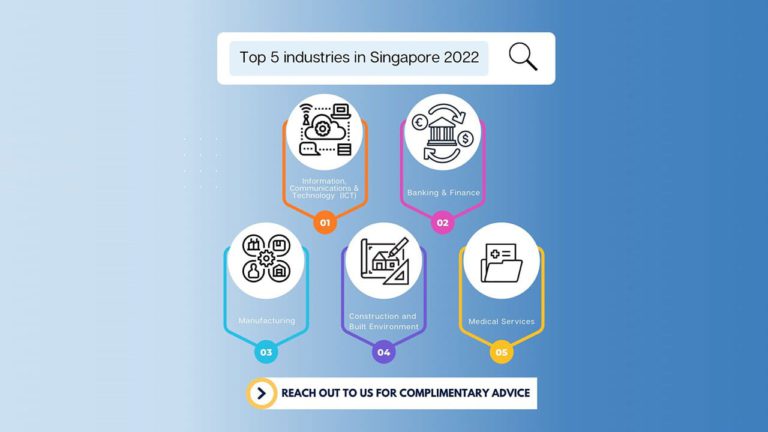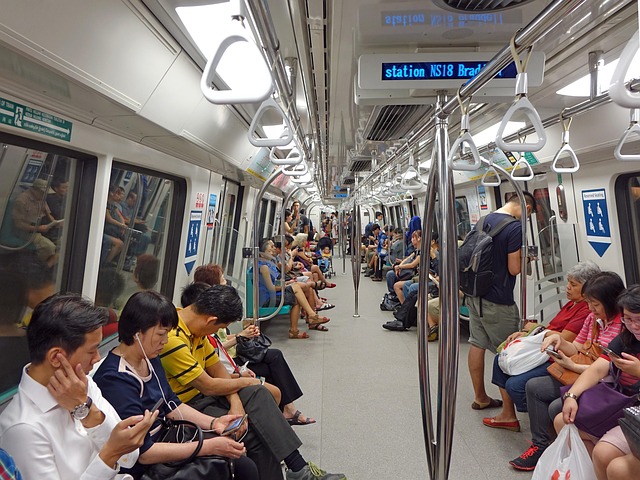Manufacturing has been a legacy sector in Singapore since its independence in the 1960s. It helped the newly independent country set the foundation of its economy and reduced the high number of unemployment. In recent years, Singapore has strategically positioned itself as a global leader in advanced manufacturing, evolving the sector with the use of cutting-edge technology, innovation, and sustainable practices. The city-state, known for its dynamic economy and pro-business environment, has embarked on a journey to transform its manufacturing sector into a cutting-edge hub.
Singapore’s Manufacturing Industries
Singapore has a diverse manufacturing sector that drives its economy, contributing around 20% in total to its annual gross domestic product (GDP). Key industries include electronics, chemicals, biomedical sciences, logistics and transport engineering.
However, to secure long-term economic growth, Singapore has to remain competitive by focusing on industries such as semiconductor, nanotechnology, MEMS, 3D Printing and automation and robotics. With the increasing global reliance on technology, Singapore’s strategy to focus on these industries are well-founded.
Singapore’s semiconductor industry alone accounts for 20% of the world’s global semiconductor equipment output, including the production and export of computer chips. Out of the top 10 drugs in the world, Singapore is producing 4 of them. Even though Singapore has no natural resources of its own, it is the 7th largest exporter of petrochemicals in the world. These feats are made possible by strategic economic planning and government support.
Government Initiatives
The Singapore government has played a pivotal role in driving the shift towards advanced manufacturing. The Industry Transformation Maps (ITMs) initiative, launched in 2016, outlines a comprehensive strategy to enhance competitiveness and productivity across various industries, with a strong emphasis on advanced manufacturing. By identifying key growth areas, investing in infrastructure, and fostering collaboration between industry players, the government has set the stage for Singapore’s manufacturing revolution.
Smart Factories and Industry 4.0
At the core of Singapore’s advanced manufacturing push is the adoption of Industry 4.0 principles. The integration of smart technologies, data analytics, and the Internet of Things (IoT) has given rise to “smart factories” that are highly automated, efficient, and adaptable. Through the use of robotics, artificial intelligence, and interconnected systems, manufacturers in Singapore are achieving unprecedented levels of precision, customisation, and speed in their production processes.
Research and Development
Singapore has invested heavily in research and development (R&D) to drive innovation in advanced manufacturing. The Agency for Science, Technology and Research (A*STAR) and other research institutions collaborate with industry partners to develop cutting-edge technologies. This commitment to R&D has resulted in breakthroughs in areas such as additive manufacturing, nanotechnology, and advanced materials, positioning Singapore as a global leader in innovation.
Skills Development and Workforce Transformation
Recognising the need for a skilled workforce to support advanced manufacturing, Singapore has implemented initiatives to upskill and reskill its workforce. The SkillsFuture program encourages lifelong learning, providing workers with the tools and training needed to thrive in the rapidly evolving manufacturing landscape. Additionally, collaborations between educational institutions and industry players ensure that the next generation of workers is equipped with the knowledge and skills required for advanced manufacturing roles.
Apart from preparing its local workforce for the future economy, Singapore has been emphasising its need for foreign talent, especially in focus sectors and industries where local workforce is still underdeveloped. Foreign talent is expected to fill the gaps in Singapore’s workforce, not only in terms of numbers but also in specialised skills where professional skill transfer to the local workforce will take place.
Highly skilled foreigners who want to work in Singapore to take advantage of the growing advanced manufacturing industries may apply for ONE Pass or set up their own company in the country. For enquiries, call IASG at +65 6493 1830 or email to info@iasg.com.sg.
Sustainability and Green Manufacturing
Singapore places a strong emphasis on sustainability in its advanced manufacturing practices. The adoption of green technologies, energy-efficient processes, and the reduction of waste are integral components of the nation’s manufacturing strategy. By promoting sustainability, Singapore aims not only to minimise its environmental impact but also to attract environmentally conscious businesses and consumers.
Currently there is a shortage of talent in this industry and is a great opportunity for skilled foreigners, such as carbon professionals, to join Singapore’s workforce. Under the new COMPASS point system for Employment Pass applications, the green economy industry is listed as one of the Shortage Occupation List (SOL). This means that foreigners who want to work in Singapore and are applying for Employment Pass (EP) get extra points in their application, ensuring a higher approval rate.
Even though Singapore has implemented green measures throughout the nation for both residents and businesses, it still has a long way to go before reaching its goals. Therefore, opportunities in this industry are abundant.
Singapore’s Push into Advanced Manufacturing & Immigration Implications
Singapore’s push into advanced manufacturing represents a paradigm shift in its economic development strategy. By embracing Industry 4.0, investing in research and development, nurturing and building a skilled workforce, and prioritising sustainability, the city-state has successfully positioned itself as a leading player in the global advanced manufacturing landscape.
Inbound immigration for skilled workers will help Singapore move towards this goal. As more new technologies are introduced and evolve, Singapore’s workforce needs to adapt quickly. The advanced manufacturing sector is therefore poised for sustained growth, contributing significantly to the nation’s economic prosperity and resilience in the face of global challenges.







